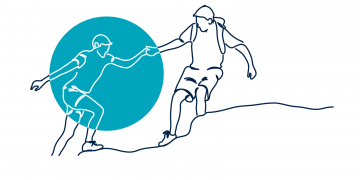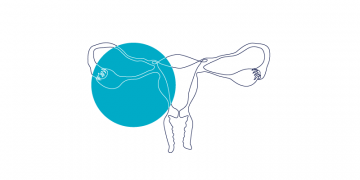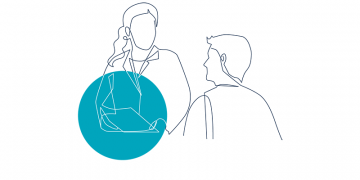By Dr. Sarah McCorquodale on June 17, 2024
Having evidence that remission of type 2 diabetes is possible through weight loss in select people, I have changed my approach to prevention and management of type 2 diabetes.
By Beata Chami on November 8, 2023
Experience of imposter feelings is linked to poor mental health outcomes such as anxiety, depression, and burnout and results in lower professional fulfillment. There may not be a “cure” for imposter syndrome, but there are strategies available to minimize the onset of it. Addressing symptoms that can have a significant impact on your well-being and those that you care for.
By Drs. Kerstin Gustafson and Colleen Dy on May 2, 2023
Women should be proactively educated at routine visits on menopause and the changes in the genital tract and anyone with vulvar and vaginal complaints should be offered a clinical exam to rule out secondary causes. GSM often continues to worsen with time if untreated. Daily use of vulvar and vaginal moisturizers and barrier creams to protect the skin from irritants may be helpful. Use of lubricants for intercourse should be recommended routinely. Many women will require pharmacotherapy in addition to non-hormonal treatments.
By Drs. Tandi Wilkinson and Shireen Mansouri on December 7, 2021
We are hearing from many of our medical colleagues about their distress in this time of COVID-19. Many are troubled by the fact that most of the people admitted to hospitals and intensive care units are not vaccinated. Faced with yet another variant and uncertainty, we hear that our colleagues are exhausted, frustrated, and angry. Both authors, being interested in supporting physicians to thrive in their work, have been studying compassion and its role in practitioner well-being for the last few years. As looking at this issue (and other challenges of the pandemic) through the lens of compassion has been personally helpful to both of us, we wanted to share our learnings with you.
By Beata Chami on October 5, 2021
It has been eighteen months since COVID-19 emerged in Canada. The trajectory of the pandemic has placed a strain on our citizens’ mental health, particularly our frontline workers. While physician well-being has been a longstanding concern, the global pandemic has magnified the daily challenges that clinicians so bravely navigate to safeguard the health of their patients.
By Dr. Linda Uyeda and Dr. Ashley Miller on July 7, 2021
The ingredients needed to create a happy workplace also largely reflect the principles of secure attachment. Across all levels within organizations, if people do not feel “safe, seen, soothed, and secure” they are more likely to make errors, breach safety protocols, and struggle working together as a team.
By Dr. Shireen Mansouri on June 10, 2020
Compassion is the ability to notice that someone is suffering, feel connected to them, and want to act to alleviate the suffering. Self-compassion is the same as compassion but directed towards oneself. Be a good friend to yourself.
By Beata Chami on May 20, 2020
Healthcare professionals have been hit hard by the consequences of COVID-19. Some are putting in long hours, treating infected patients, and physically distancing themselves from their families. Others are losing work in their clinics and trying to figure out how to keep their practices afloat, all while worrying that they may be contracting the virus and putting their health at risk. This article will provide strategies and tools to support your well-being during the COVID-19 pandemic.
By Dr. Tahmeena Ali on August 21, 2019
I now ask all patients, young and old, new to my practice and established for years, male and female, to complete an ACEs questionnaire in my clinic. I garner a new level of respect for my patients’ resilience and for the ongoing turmoil many of my young patients face. I make finding supports for these young vulnerable patients one of my top priorities—as important as a referral to a specialist or for diagnostic imaging.
By Beata Chami on July 10, 2019
Have you ever felt unable to make it to work, but disregarded the idea completely? These days, a common question either asked or assessed by healthcare organizations is to uncover the reason behind why doctors become unwell in their professional roles.
By Dr. Joanna Cheek on May 8, 2019
View personality disorder symptoms as important treatment targets in themselves. Be curious about each patient’s story, validate PD symptoms as coping mechanisms, focus on collaborative problem solving, set proactive regular visits, and also be mindful of your own emotional reactions providing compassion and empathy while setting clear boundaries.
By Dr. Maia Love on July 4, 2018
Defining yourself as a person first, and your role as a professional second, has benefits in preventing burnout and creating more personal energy. Put your own oxygen mask on first.












Recent Comments